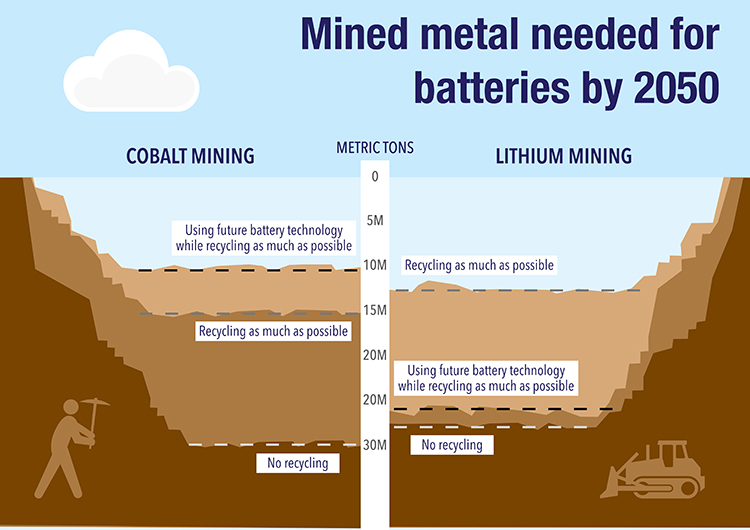
The UN has convened a panel to address equity, sustainability and human rights abuses linked to the mining of critical minerals
By
Cobalt is a key component of the batteries that power our telephones, electric vehicles, solar panels and our computers. It could be said that cobalt – alongside other critical minerals such as copper, magnesium, silicon and others – are the key to the essential green revolution. But, there’s an increasingly well-documented problem. The mining for some of these minerals – cobalt in particular – has been associated with grave human rights abuses and environmental damage. This is particularly the case in the Democratic Republic of Congo where the lion’s share of the world’s supply of cobalt is found. Here, there are reports that the mining of cobalt has led to forced child labour, sexual abuse, murder and forced relocation.
But, if we are to meet the Paris Climate Change Agreement target of limiting global warming to 1.5 degrees Celsius, we are dependent on a sufficient, reliable and affordable supply of critical energy transition minerals. At last year’s COP28, governments agreed to triple renewable energy capacity by 2030. However, there is no pathway to achieving this goal without a significant increase in the supply of critical energy transition minerals. According to the International Energy Agency (IEA), mineral demand for clean energy applications will grow by three and a half times by 2030 in order to reach global net zero carbon dioxide emissions by 2050.

So, how to do this in a manner that ensures that everyone, all over the world, benefits? To find solutions to this pressing problem, UN Secretary-General António Guterres is bringing together more than a hundred governments and other stakeholders across the entire minerals value chain to develop a set of global common and voluntary principles to safeguard environmental and social standards and embed justice, in the energy transition.
The new panel aims to address issues relating to equity, transparency, investment, sustainability and human rights. ‘A world powered by renewables is a world hungry for critical minerals,’ said the Secretary-General. ‘For developing countries, critical minerals are a critical opportunity — to create jobs, diversify economies, and dramatically boost revenues. But only if they are managed properly. The race to net zero cannot trample over the poor. The renewables revolution is happening – but we must guide it towards justice.’
Related links:



